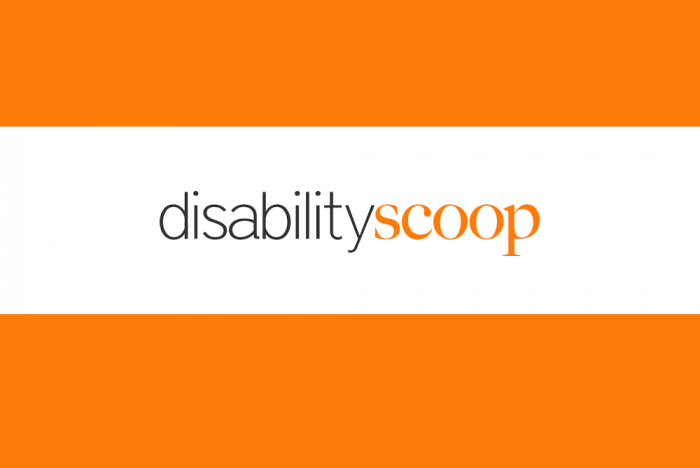Funding
SAMHSA ACT Program Grant Opportunity: Initiative to Target Transition Age Youth & Adults
The Office of Mental Health and Substance Abuse Services (OMHSAS) has announced a grant opportunity from the Substance Abuse and Mental Health Services Administration (SAMHSA) specific to Assertive Community Treatment (ACT) programs.
SAMHSA will award approximately 7 applicants up to $678,000 each. The purpose of this program is to establish or expand and maintain ACT programs for transition-aged youth and adults with a serious mental illness (SMI) or serious emotional disturbance (SED). Recipients are expected to implement an ACT program to fidelity and provide ACT services to the population of focus. With this program, SAMHSA aims to improve behavioral health outcomes for individuals by reducing rates of hospitalization, mortality, substance use, homelessness, and involvement with the criminal justice system.
Please visit here for additional information. Applications are due by April 10, 2023.
Contact Information:
Program Issues:
Dawnielle Tillman, Public Health Advisor
Center for Mental Health Services
Substance Abuse and Mental Health Services Administration
(240) 276-1572
Grants Management and Budget Issues:
Office of Financial Resources, Division of Grants Management
Substance Abuse and Mental Health Services Administration
(240) 276-1400
If you have further questions, please contact RCPA Policy Director Jim Sharp.
Governor Shapiro Delivers First Budget Address; Acting Secretary Arkoosh to Speak Regarding DHS Proposed Budget
PA Senators Present $400,000 State Grant to RCPA Member Child Guidance Resource Center
Capitolwire: Sens. Kim Ward, Joe Pittman, and Scott Martin: Senate Republican Caucus Announces Principles and Priorities for 2023/24 Session
Call to Action: Contact Governor Shapiro to Fund IDD Services
RCPA has partnered with other organizations representing intellectual disability and/or autism (ID/A) providers to send a letter to Governor Josh Shapiro asking him to invest an additional $430 million for IDD services in the 2023/24 state budget proposal. Governor Shapiro needs to hear from providers, families, individuals, and advocates for the IDD system that we are in critical need of this additional funding. This investment would enable providers to improve the wages for the Direct Support Professionals (DSPs) who provide care to individuals with ID/A. Improving wages will help to ensure services are available to the individuals and families who rely on these services.
Currently, thousands of Pennsylvanians with ID/A are not receiving the supports they are entitled to through Medicaid, and those individuals who are currently receiving services are in danger of losing them. The current rate system does not support the ever rising costs of providing services and paying the DSPs a wage that is reflective of their duties. Our workforce is not sufficient to meet the needs of everyone who requires care.
The additional investment into the Home and Community-Based Services rates will enable providers to give their DSPs a raise and a better starting wage to compete with other employers.
Please reach out to our Governor and ask for his support today! You can reach Governor Shapiro via this online form.
County-Based MH Funding Advocacy Letter From the Mental Health Safety Net Coalition
The sustained funding of community-based mental health services, such as community residential programs, family-based support, outpatient care, and crisis intervention, are critical to the wellbeing of our constituents and our communities. Funding levels for county mental health services have direct impacts on whether these important community and family supports will be available. Yet for too many years, state funding for mental health services has lagged far behind its needs. Counties find themselves advocating for the prevention of funds being cut instead of achieving the increases that are needed to catch up from years of underfunding.
This year, RCPA and other system stakeholders once again teamed with the County Commissioner Association of Pennsylvania (CCAP) through the Mental Health Safety Net Coalition. The mission and vision of this campaign continues to promote awareness of the critical funding needs of mental health services for vulnerable Pennsylvanians. As RCPA and the Mental Health Safety Net Coalition continue our efforts, we ask our members, stakeholders, and partners to join us in this collaborative effort by engaging with your legislators. “County mental health services provide a critical piece to the public safety net for people in need,” notes Richard S. Edley, PhD, President and CEO of RCPA. “The system sustained cuts over a decade ago with little relief since then. It is time to restore those dollars and further enhance the system. Not only will it provide critical funding for the individuals receiving services, but there are positive benefits — both financially and clinically — to the entire community.”
The Coalition welcomes the many new partners for this 2023–24 initiative, as the time to act is now for engaging with your representative. Local communities and providers have come together to sustain the safety net and serve those who need it most. The reality is that the demand for service far outweighs capacity and rate structures to serve this population.
View our first of many communications that will go out on behalf of the Coalition as an open call to the PA General Assembly and stakeholders. This will provide you with strategic talking points for our outreach. If you have additional questions or would like to join the Mental Health Safety Net Coalition, please contact RCPA Policy Director Jim Sharp.
SAMHSA Funding Opportunity for Youth Mental Health Systems of Care
The Substance Abuse and Mental Health Services Administration (SAMHSA) will award approximately 26 applicants up to $3,000,000 to provide resources to improve the mental health outcomes for children and youth, birth through age 21, who are at risk of or have serious emotional disturbances (SED) and their families. This grant supports the implementation, expansion, and integration of the System of Care (SOC) approach by creating sustainable infrastructure and services required as part of the Comprehensive Community Mental Health Services for Children and their Families Program.
You can find additional information here. The grant closes on March 21, 2025.
If you have further questions, please contact RCPA Policy Director Jim Sharp.


















